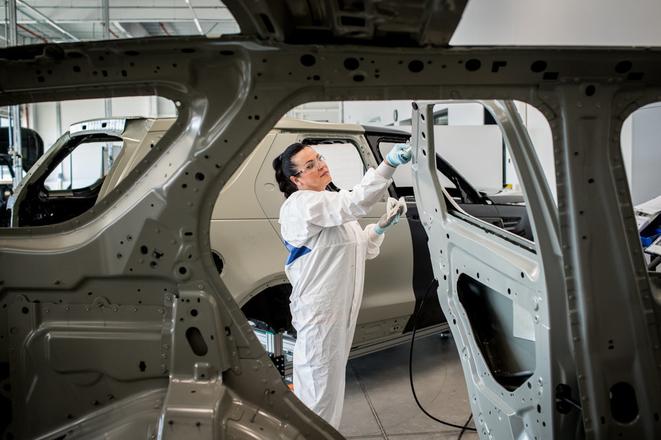After three difficult years with the Covid-19 pandemic, chip shortages and expensive energy, car production in Slovakia rose by almost 100,000 vehicles y-o-y to 1.08 million cars in 2023. This was about 30,000 units less than in the so-far record, pre-Covid year of 2019. That year 1.108 million cars rolled down the production lines of four carmakers in Slovakia.
Nevertheless, the Slovak Automotive Industry Association (ZAP) expects that overall output to exceeded this level this year.
“We estimate a further increase in the production of the Slovak automotive industry still without Volvo, where we estimate around 1.13 million vehicles, with the expectation that this year could be even better than the last one and the best in history,” said Alexander Matušek, ZAP president at an annual press conference on Thursday.
Slovakia remains to be the world leader in vehicle production per capita, with 198 vehicles produced per 1,000 Slovaks. Slovakia is also among the top countries in terms of labour productivity per employee, with the number of vehicles produced per employee reaching 12.6, a result second only to Spain’s.
The automotive industry accounted for 10.4 percent of GDP last year, 46.5 percent of total industry sales and 41.4 percent of exports. The sector directly employed more than 170,000 people, with aggregate employment reaching 255,000.
Three out of four carmakers boosted production last year, Volkswagen the most
Car production mainly jumped last year because carmakers were no longer as short of chips as the year before. In its plant near Žilina, Kia Slovakia produced a record 350,224 cars, 12.6 percent or 39,000 more than in 2022. Volkswagen Slovakia, which will announce its official results only in spring, indicated that it boosted car production by more than 22 percent to almost 330,000 cars compared with 2022.
The car production in the Trnava-based plant decreased by some 15 percent to 264,702 vehicles as the plant ceased manufacturing the Peugeot 208 model in September 2023, company spokesperson Milan Nič told the SITA newswire.
While the Nitra plant of Jaguar Land Rover does not reveal an exact number of cars it produces, available data indicate that it manufactured almost 135,000 vehicles last year. Nevertheless, the plant increased its weekly production from 2,000 to 3,000 vehicles last year. This means that the youngest carmaker in Slovakia, which marked its fifth anniversary last year, is finally running at its full capacity of 150,000 vehicles.
Electric challenge
Car production in Slovakia is gradually transforming into the production of electric cars, while Matušek expects a big shift to take place after 2026.
Bratislava-based Volkswagen plant is expected to resume the production of fully electric cars, ceasing the production of electric small family cars last year (2012-2023). One of the expected major projects is the arrival of the next-generation Porsche Cayenne, which will be first all-electric SUV produced in the plant. Its launch is scheduled for the second half of this decade.
The government greenlit yesterday a state investment aid amounting to €29.95 million for Kia Slovakia in the form of income tax relief to support its more-than-€100 million investment into its expansion of its current production capacities, with the plan to produce electric cars here.
2024 will be a start-up year for Stellantis, launching the serial production of the new electric C3 and other models later, Nič told SITA.
The Jaguar Land Rover plant in Nitra will produce pure electric vehicles by the end of the decade, Barbara Bergmeier, executive director of industrial operations at JLR, announced in late October 2023.


